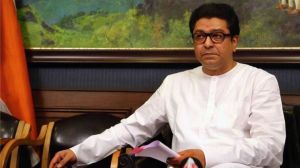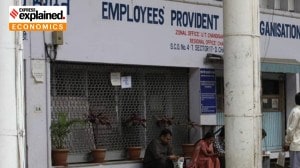The Booker Prize, one of the most prestigious awards in the literary world, has recently come under fire for the historical links to slavery of its original sponsor, Booker Group.
Last week, BBC Radio host Richie Brave posted on X about a page on the Booker website which said that in the early 1800s, the company founders — brothers George and Josias Booker — “managed nearly 200 enslaved people”.

“Hi @TheBookerPrizes, I really appreciate the transparency. The enslaved African people referenced are my family. Josias & George did not ‘manage’ my family. They enslaved them,” he wrote. The website has since changed the word “managed” to “enslaved”.
First, what is the Booker Prize, and who is behind it?
The Booker Prize was founded in 1969, initially just for writers from the Commonwealth, but later opened to writers globally. Each year, the prize is awarded to a single work of fiction in the English language. In 2004, a separate International Booker Prize was instituted for translated works.
The prize was co-founded by publishers Tom Maschler and Graham C Greene, and from 1969 to 2001, it was sponsored by, and named after Booker Group Ltd, a British wholesale foods company, established in 1835 as a shipping and trading company, and now owned by Tesco. In 2002, British investment management firm Man Group became the prize’s sponsor, and thus it came to be known as The Man Booker Prize.
After Man Group ended its sponsorship in 2019, American charity Crankstart took over, and reverted the award’s name to its original ‘Booker Prize’.
What are the Booker links to slavery and indentured labour?
In 1815, the Congress of Vienna divided the northeastern coast of South America among three European Powers. The Dutch got modern-day Suriname, France got French Guiana (still a French overseas territory), and Britain got what is now known as Guyana. Scores of entrepreneurial European men — like the Booker brothers — headed to these colonies to make a quick fortune.
Story continues below this ad
The economy of British Guyana was largely driven by the sugar, and (to a lesser degree) cotton industries, with African slaves providing the necessary labour in plantations. The Booker brothers were very much a part of this exploitative slave-based economy.
According to the Booker website, Josias managed a cotton plantation in northern Guyana where he enslaved “nearly 200 people”. Along with his brothers, he would then go on to own several sugar plantations, which too would have been operated by slaves.
When slavery was abolished in Guyana in 1834, “the Booker brothers received compensation from the state for 52 emancipated slaves. The Legacies of Slave Ownership database at University College London records the total sum as £2,884, equivalent to £378,000 in 2020,” the Booker website states.
And the exploitation did not stop after African slaves’ emancipation. Rather, plantation owners like the Bookers decided to exploit another population — Indians who faced massive debt and unemployment back at home, in no small part due to East India Company’s disastrous agrarian policies.
Story continues below this ad
“Rather than pay fair wages to free African workers, British planters such as the Bookers convinced the British government to help finance voyages to collect replacement sugar workers — indentured workers from India,” Natalie Hopkinson, a journalism professor whose ancestors were enslaved in Guyana and worked at the Bookers’ farms, wrote for The New York Times in 2017.
The system of indentured labour lasted till about the 1920s. The scale of the migration of labourers from India was such that today, people of Indian origin are the single largest ethnic group in Guyana.
Previous criticism of the Booker
In 1972, philosopher and critic John Berger won the Booker Prize for his experimental novel G. Protesting the prize’s links to slavery, he decided to donate half of his prize money to the British Black Panther movement, an organisation which fought for the rights of Black people and minorities in the country.
As part of his acceptance speech, he said: “Booker McConnell has had extensive trading interests in the Caribbean for over 130 years. The modern poverty of the Caribbean is the direct result of this and similar exploitation… The London-based Black Panther Movement has arisen out of the bones of what Bookers and other companies have created in the Caribbean… [the Black Panthers] have links with the struggle in Guyana… in Trinidad and throughout the Caribbean: the struggle whose aim is to expropriate all such enterprises.”
Story continues below this ad
In an interview with the Guardian earlier this year, black American novelist Kiley Reid said that when she was longlisted for the Booker prize in 2020, interviewers asked her how she felt about her book being nominated for an accolade that had historical links to racism.
She said: “I’ve never seen white authors being asked the same question… it didn’t feel completely fair. And on the other, every university I’ve ever taught at has a racist past. It’s everywhere”.








































